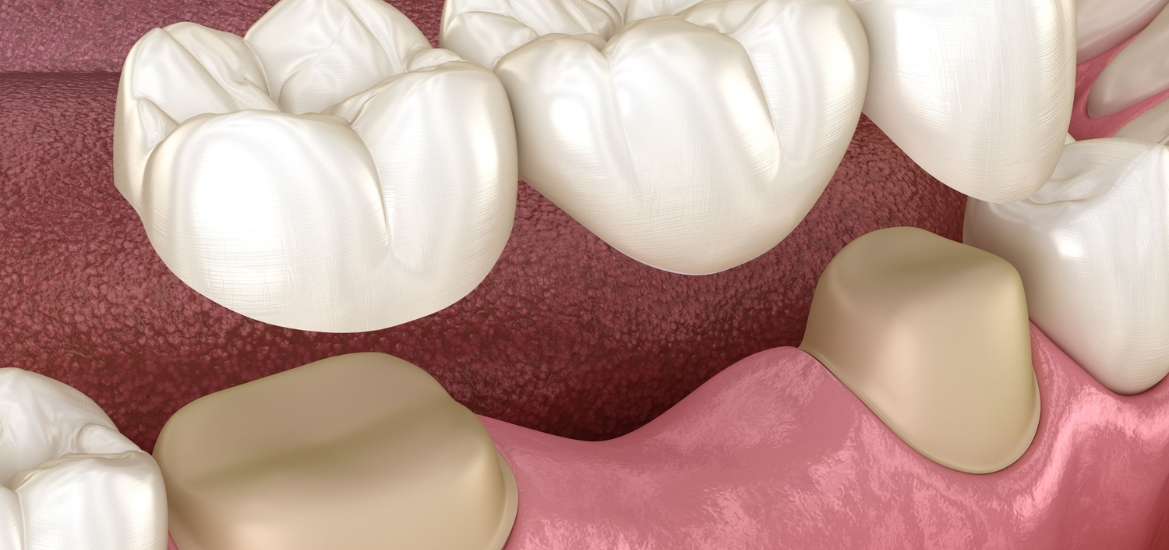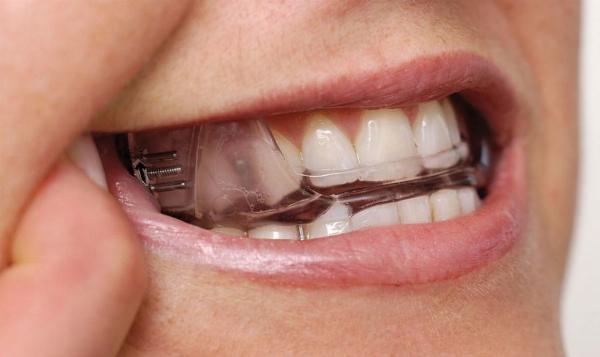Can Dental Crowns Improve Your Bite and Chewing Efficiency?

Strong 8k brings an ultra-HD IPTV experience to your living room and your pocket.
A Stronger Bite Starts with Tooth Restoration
A well-aligned, fully functional bite is essential for comfortable eating and digestion. When a tooth is cracked, worn down, or has undergone root canal therapy, your bite pressure may shift. That shift doesn't just affect the single tooth—it can throw off your entire bite alignment. This is where dental crowns come into play. These custom-made caps cover damaged teeth and help restore their original shape, size, and function. But their benefits go beyond aesthetics. Crowns can significantly enhance your chewing ability and correct bite imbalances.
Understanding the Importance of Proper Chewing
Chewing is more than just breaking food into smaller pieces. It starts the digestive process by mixing food with saliva and signals your stomach to get ready for absorption. When one or more teeth aren't functioning properly, your jaw muscles work harder. Over time, this imbalance can lead to discomfort, TMJ pain, or even uneven tooth wear. Properly placed dental crowns can fix these issues by restoring tooth height and symmetry, giving your jaw a balanced surface to work with.
How Damaged Teeth Affect Chewing Mechanics
A single broken or severely worn tooth can create ripple effects across your entire mouth. Here’s how it happens:
- Uneven Pressure: You start favoring one side while chewing, which strains certain teeth and jaw muscles more than others.
- Jaw Discomfort: This uneven stress can lead to jaw fatigue or tightness, especially during meals.
- Inefficient Breakdown of Food: Incomplete chewing may result in digestive issues over time.
Dental crowns address all of these concerns by restoring the tooth to its full strength and ideal shape. They’re built to withstand bite forces and help distribute chewing pressure evenly.
Types of Dental Damage That Benefit from Crowns
Cracked or Fractured Teeth
When a tooth cracks, it becomes structurally unstable. You may unconsciously avoid chewing on that side, causing imbalance. A dental crown seals the crack and reinforces the tooth, making it safe and pain-free to use again.
Severe Wear and Tear
Years of grinding, acidic erosion, or aging can flatten your biting surfaces. This reduces your ability to cut or grind food efficiently. Crowns rebuild the height of the teeth, restoring proper function and natural bite rhythm.
After Root Canal Therapy
Teeth that undergo root canal treatment often become brittle. A crown protects the tooth from breaking under pressure while also restoring full chewing ability.
Large Fillings That Compromise Tooth Structure
When more than half of a tooth is filled, its structural integrity is reduced. Placing a crown over it allows you to chew normally without fear of fracture.
Crowns and Bite Alignment: How They Work Together
Bite alignment refers to how your upper and lower teeth come together. Ideally, your teeth should meet evenly when you bite down. If you lose a tooth or it becomes significantly worn, your bite changes—sometimes subtly, sometimes drastically. Dental crowns help restore the original balance by mimicking the natural contours of your teeth.
- Once placed, a well-crafted crown can help:
- Prevent overuse of certain teeth
- Reduce jaw tension
- Protect against further wear
- Improve the balance of pressure across your mouth
Dentists also use crowns as part of full-mouth reconstruction plans. When several teeth are restored with crowns, your bite alignment can be recalibrated entirely, leading to better jaw function and less discomfort during eating.
Material Choices Can Impact Function
Porcelain-Fused-to-Metal (PFM)
These crowns combine strength and aesthetics. The metal base adds durability while the porcelain exterior blends with your natural teeth. They are ideal for back molars that need to handle heavy bite force.
All-Ceramic Crowns
Perfect for front teeth or patients with metal allergies, all-ceramic crowns are less likely to cause irritation. Advances in ceramic materials make them strong enough for most chewing tasks.
Zirconia Crowns
Known for exceptional strength, zirconia crowns are ideal for people who grind their teeth. They are long-lasting and can be custom-tinted to match nearby teeth.
Gold Crowns
While not as popular for visible teeth, gold crowns remain one of the most durable options. They rarely chip and are gentle on surrounding teeth. They’re often recommended for molars where appearance matters less.
Your dentist will recommend a crown type based on the tooth’s location, the forces it will need to withstand, and your aesthetic preferences.
Adjusting to Chewing with a New Crown
It may take a few days to fully adjust to chewing with a new crown. At first, the crown might feel slightly higher or more prominent. This sensation typically fades as you get used to the restoration. Your dentist may make minor adjustments to ensure that your bite feels even. Once properly seated, the crown will function like a natural tooth.
Most patients notice an improvement in bite comfort within a week. Foods that once felt hard to chew—like steak or raw vegetables—become easier to handle. A properly fitted crown also prevents unnecessary stress on neighboring teeth, giving your mouth a more harmonious feel.
Benefits Beyond the Bite
Dental crowns don't just enhance function—they protect oral health over the long term. They shield vulnerable teeth from further decay or breakage, which can prevent the need for extractions or implants down the line. By restoring bite strength, they also make it easier to eat nutritious foods, which supports overall health. And when your mouth feels better, you're more likely to maintain good habits like brushing, flossing, and regular checkups.
A well-placed dental crown is an investment in both comfort and confidence. Whether you're dealing with a single damaged tooth or multiple worn-down areas, crowns offer a functional and durable solution that supports long-term wellness.
If you're experiencing uneven bite pressure, jaw fatigue, or difficulty chewing, consult a dental provider for a custom assessment. Whether for functional restoration or aesthetic improvement, Dental Crowns Fort Worth practices can help design a tailored plan that supports better eating, speaking, and smiling.
Note: IndiBlogHub features both user-submitted and editorial content. We do not verify third-party contributions. Read our Disclaimer and Privacy Policyfor details.







